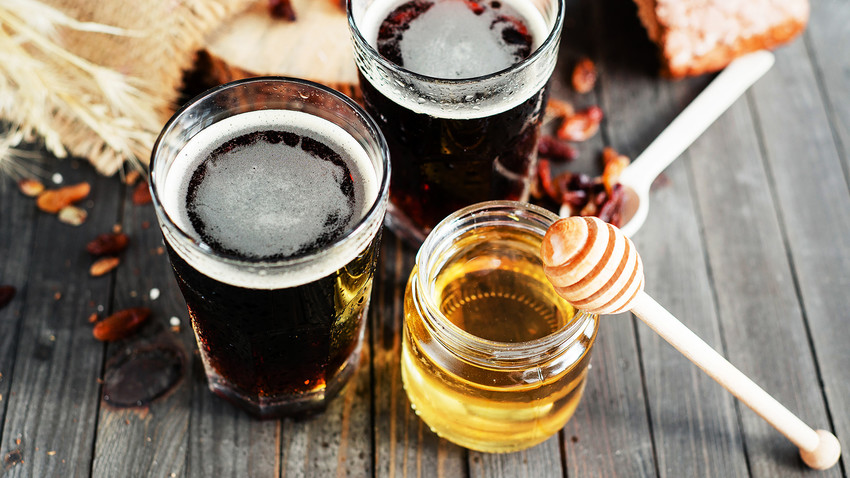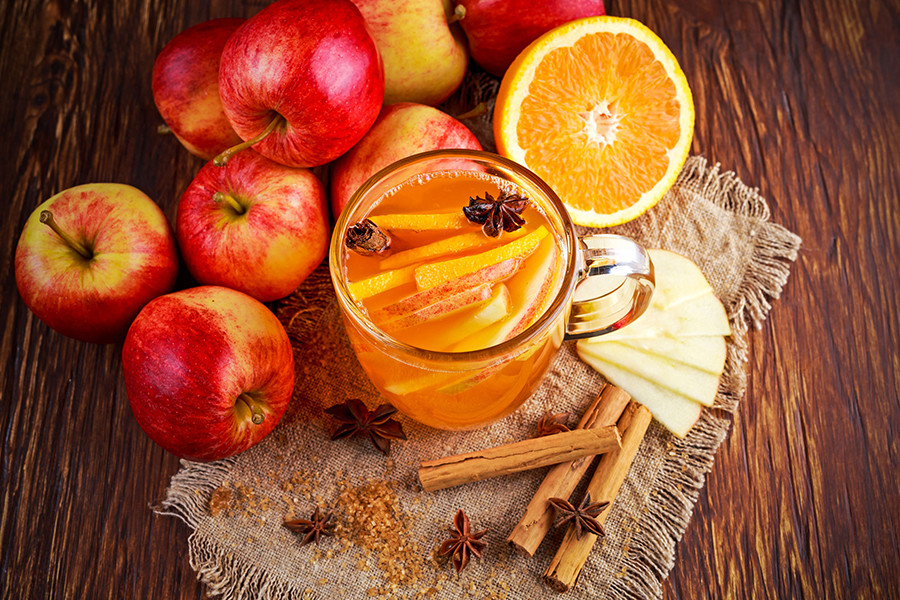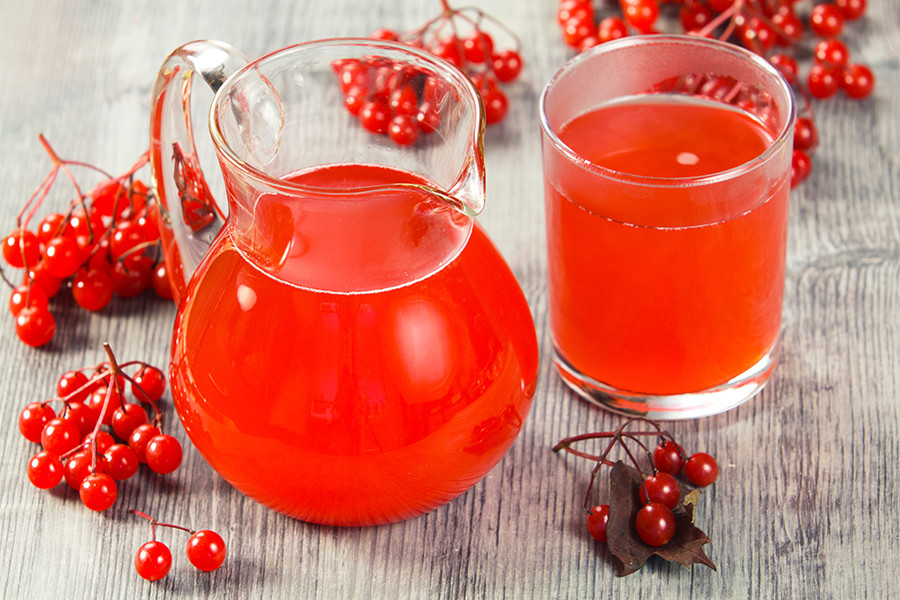
Until the 12th century kvass in Russia was stronger than modern beer. Back then there were two types of the drink: It was either very boozy or not so boozy. Today kvass has a different image and the large majority is mildly alcoholic - people have altered the recipe by adding fruit to make many different varieties.
In ancient times, almost every woman in Russian villages had her own recipe for the drink and it was named accordingly: "Daryin kvass" (made by Daria), etc. The simple form of the beverage was usually bread based, a mixture of water, malt, rye, wheat, and flour poured into a wooden barrel. People would add apples, pears, raisins, berries, and whatever fruit (crushed or juiced) they could get their hands on to add an extra dimension to their kvass.
Russian fruit kvass normally contains only one to three percent alcohol, while in Western Europe it's usually about three to six percent.

Apple kvass is regarded as the father of cider in Russia. It was christened by this foreign word (cidre) in the middle of the 19th century for the sake of French fashion. In Soviet times, the recipe was revived in the form of fruit wines ("plodovo-yagodnye vina"). Want to know how to cook apple kvass at home? Read our simple recipe.
Ingredients:
Preparation:
Put the sliced apples in an enamel saucepan, pour the cold water over them and bring to a boil. Remove the saucepan from the heat and let the apples sit for two to three hours. Using a sieve, drain the infused liquid from the fruits. Add the sugar, honey, yeast, cinnamon, and leave in a warm place to ferment after covering tightly. After two to three days, sieve the kvass and pour into bottles before placing them in the fridge. The kvass will be ready to drink in three to four days.
Ingredients:
Preparation:
Boil the water and add 250 grams of chopped rhubarb stalks. Cool the drink to 60-70 ° C, add three tablespoons of sugar, eight tablespoons of honey, the chopped zest and juice of two lemons, mint leaves, and currants. Stir well to dissolve the sugar and honey. Leave in a cool place for a day. Sieve the drink, pour into a container, close the lid, and place in a cool place. After one-and-a-half weeks the drink will be ready.
Mix three tablespoons of bird cherry with 300 grams of sugar in a glass bowl. Ten hours later, add warm water with dissolved yeast (ratio: Three liters to five grams). In 12 hours sieve the kvass and leave to ferment in a warm place for a couple of days.

Make a compote from one kg of berries and four liters of water. In 20 minutes, mash the berries, leave them for a while and wring out the mash. Boil the drink, let it cool, add two to three tablespoons of sugar, sliced lemon, and 10 grams of yeast. Sieve the drink after 16 hours and store in a fridge.
Make an unsweetened compote from cherries (ratio: One liter to 250 grams). Cool and sieve. Add six grams of dry yeast, four slices of rye dried bread, two to three tablespoons of sugar, and 10 raisins. Leave in a warm place to ferment. If the drink is too sweet, add lemon juice.
In the summer berry kvass is made from fresh fruit, and in winter you can use frozen berries.
If using any of Russia Beyond's content, partly or in full, always provide an active hyperlink to the original material.
Subscribe
to our newsletter!
Get the week's best stories straight to your inbox